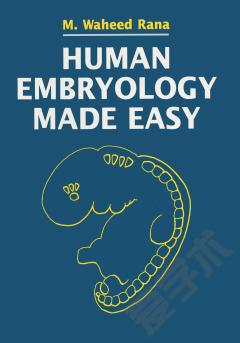Ontology Made Easy
Introduction: The Forgotten Easy Approach 1. The historical back story 2. The rise of neo-Quineanism 3. The easy approach to ontology: a preliminary sketch 4. The plan of this book Part 1: Developing Easy Ontology 1) Whatever Happened to Carnapian Deflationism? 1. Carnap's approach to existence questions 2. Quine and the ascendency of ontology 3. Putnam takes deflationism on an unfortunate turn 4. 'Exists' as a formal notion: a brief history 5. Is Carnap committed to quantifier variance? 6. Conclusion 2) The Unbearable Lightness of Existence 1. A core rule of use for 'exists' 2. What are application conditions? 3. Do application conditions for 'K' include that Ks exist? 4. Answering existence questions easily 5. Against substantive criteria of existence 6. Lines of reply 3) Easy Ontology and its Consequences 1. Using trivial inferences to answer existence questions 2. Three forms of easy ontology 3. First result: simple realism 4. Second result: Meta-ontological deflationism 4) Other ways of being Suspicious 1. Denying that ontological disputes are genuine disputes 2. Denying that we can know the answers 3. Denying that there are answers to know 4. Understanding hard ontology 5) Fictionalism versus Deflationism 1. Motives for fictionalism 2. The fictionalist's case against easy arguments 3. A problem for the fictionalist's analogy 4. How the fictionalist incurs a debt 5. A reply for the fictionalist 6. The deflationary alternative 7. Conclusion Part II: Defending Easy Ontology 6) "Easy arguments give us problematic ontological commitments" 1. Unwanted ontological commitments? 2. Why easy arguments require no magic 3. Do we get the objects we wanted? 4. Conclusion 7) "Easy arguments rely on the questionable idea of conceptual truths" 1. Why easy ontology needs conceptual truths 2. Williamson's attack on epistemic analyticity 3. How easy inferences survive 4. Caveats and conclusions 8) "Easy arguments rely on principles that keep bad company" 1. The bad company challenge for the easy approach 2. Avoiding bad company 3. The limited impact of bad company objections 9) "The conclusions of easy arguments don't answer ontological questions" 1. Hofweber's solution to the puzzle about ontology 2. Focus and ontology 3. Ways to read the quantifier 10) "Hard ontological questions can be revived in Ontologese" 1. Existence questions in Ontologese 2. Just more metaphysics? 3. Avoiding the joint-carving quantifier 4. Problematizing the joint-carving quantifier Conclusion: The Importance of Not Being Earnest 1. The empirical, conceptual, and pragmatic case for deflationism 2. Metaphysics in a new key?
{{comment.content}}








 京公网安备 11010802027623号
京公网安备 11010802027623号